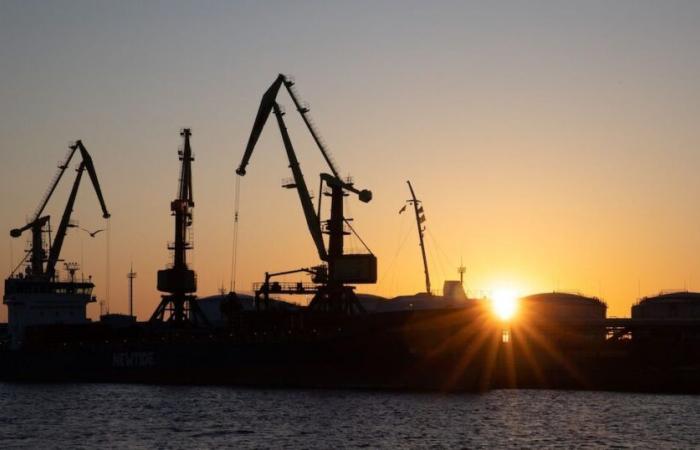Buenos Aires – The fall in the international oil price will have a bittersweet impact on the economy argentina. Reduces raw exports income and affects investments in Muerta Vacabut also brings relief to local gas pricesalthough that decline is partly supported by a policy of the Ministry of Economy of not updating taxes, in a decision that affects tax collection.
OPEC +’s decision to increase production from May deepened the depression in the price of oil that was in the order of US $ 60 per barrel, figures that were not reached since February 2021.
See more: Will Vaca Muerta resist? The future of the Argentine shale before the breakfast of the price of the Brent
According to a calculation of the Economy & Energy consultant, considering an average price of oil sales of US $ 69 per barrel, with a total production of 762,000 barrels per day, The income flow would totalize US $ 19.3 billion. But For every five dollars that the price of oil sale is reduced, foreign exchange revenues fall by almost US $ 1.4 billion.
In 2024, crude oil sales totaled US $ 5,473 million, at an average price of US $ 80 per barrel. In the first three months of the year, the average price for sales was US $ 75 per barrel. To hold those prices, The final number of 2025 would be US $ 5,933 million, due to the increase in exports. But a drop of $ 10 in the international price would generate an adjustment of US $ 800 million.
“If it is also assumed that the decrease in prices would imply a drop in the activity level and, with it, of the volumes available for exportthe reduction in currency income would be even greater”Adds the report.
This price drop can also impact on the growth of Vaca Muerta. The report adds that a five -dollar decrease per barrel would in turn generate a contraction equivalent to 13% of total investments in the sector by 2025, which at the beginning of the year was estimated at US $ 11,100 million.
BEEN: Shell analyzes BP purchase: it would be one of the greatest acquisitions of the oil sector
What about gasoline?
Online to the policy of accompanying international values, the president and CEO of YPF, Horacio Marínone resolved 4% decrease in the price of fuels for the month of May. In parallel, The Ministry of Economy postponed the update of the aliquots of the Liquid Fuel and Carbon Dioxide Tax, which are adjusted by inflation and quarterly.
“The decrease in prices in all -supply prices with the non -update of taxes shows the decision of the national state to privilege the inflationary goal over the fiscal goal ”, The consultant directed by Nicolás Arceo maintains.
In the first quarter of 2025, the price of gasoline in dollars increased 5.3% compared to the same period of 2024. But measured in constant pesos, it implies a 6.3% contraction compared to last year’s average. And in terms of local purchasing power, The price of the gasoline is 20% below the average verified in the last and a half decade.
Less collection
Since May 2024, the Government began to postpone the update of the total amount of taxes received in fuels. This decision generated that during the past year the Government stopped raising US $ 2,011 million, According to E&E calculations.
And in the first quarter of 2025, with the decision to continue postponing updates, The loss of collection is US $ 601 million.






